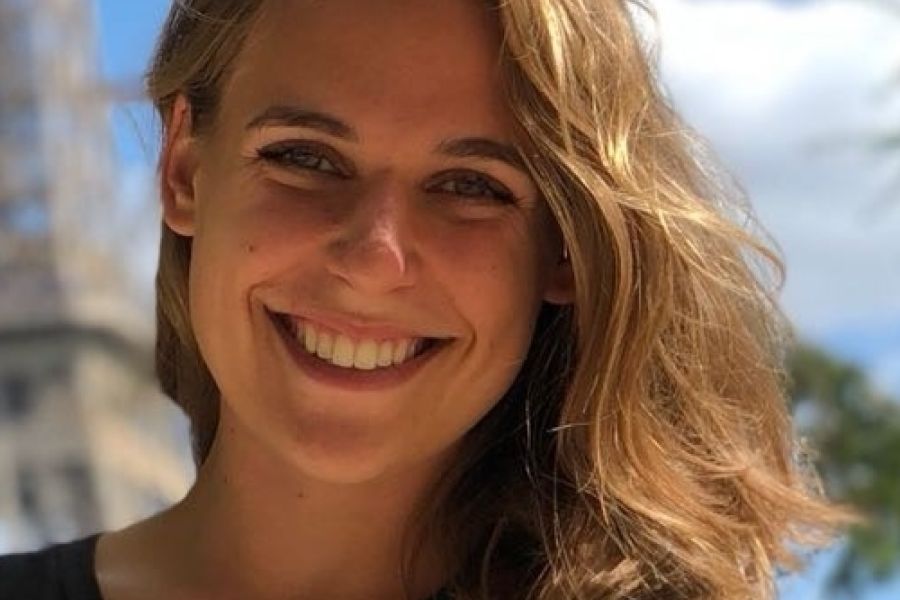Does it matter what time you exercise? PhD candidate Gali Albalak will investigate

On January 1st 2022, PhD candidate Gali Albalak started her research project at the Leiden University Medical Centre and Leyden academy. She will investigate whether the time of exercise, morning or evening, matters in maintaining a healthy circadian clock and whether this helps in growing old healthy and happily. She will carry out this research under supervision of dr. Raymond Noordam, dr. ir. Diana van Heemst and prof. dr. David van Bodegom. Gali introduces herself below.
Tell us a little about yourself, who are you, where are you from and what are your hobbies?
My name is Gali Albalak. I am 25 years old and I was born in Israel but from the age of six I grew up in a small town in Friesland. I have been living in Leiden since I started my masters here in 2018. In my free time I love to exercise. It doesn’t really matter what kind of exercise. Whether it’s going for a run, bouldering, road biking, tennis or yoga, I love it al! I also love to cook, read, and photography.

What is your background?
I did my bachelors in Physical Therapy in Groningen where I specialized in research and geriatrics. In 2018 I moved to Leiden to do my masters Vitality and Ageing at Leiden University. I did my master thesis at the department of Geriatrics and Gerontology in the LUMC where I studied novel method for mapping objective physical activity in older adults since activity patterns reflect biological age and health status. After finishing my masters I stayed with the department where I now get to be part of this awesome consortium which perfectly fits my background!
Where will you work on your project and what is your project about? Tell us in a few lines.
As a Bioclock PhD candidate I will research the effect of physical activity timing (i.e chronoactivity) on rhythmicity and various health outcomes. It is known that the circadian clock loses its’ amplitude and phase mis-alignment occurs more frequently with ageing. This can cause sleep problems but also worse; circadian desynchrony is a risk factor for cancer onset, cardiovascular disease and neurodegenerative diseases. Observational studies show that circadian timing of Zeitgebers (circadian clock cues including physical activity) can synchronize rhythms and decrease disease risk. I will examine this by performing analyses in observational big data as well as by setting up a cross-over study in which we measure this effect in older adults.
When did you first hear about the biological clock?
I first heard about the biological clock in a lecture during my masters. It was about the role of the biological clock in metabolic syndrome. I remember the lecturer telling us light exposure and food intake were the most important timing cues for the biological clock. We now know that physical activity joins this list and I’m very excited to be able to contribute to this important field of research!
What is something that people should know about you?
Ever since I was little I was fascinated by the ageing process and later it became my goal to contribute to the quality of life of older adults. Next to this, I always had the perfect example of healthy ageing: my grandma (86), who can still do cartwheel! We call each other at least once a week to chat about life and whenever we can, we exercise and organize fun activities together!

The BioClock Consortium is funded by the NWA-ORC programme of the Dutch Research Council (NWO; project number 1292.19.077).